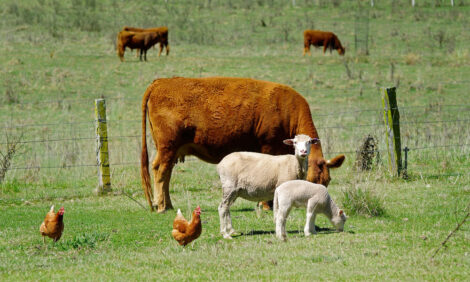



Dioxins Discovered in More German Eggs
GERMANY - Dioxin–contaminated eggs from an organic farm in Lower Saxony have now been discovered in nine states. Investigations are on-going into the source of the dioxin and any possible link to recent similar cases.Eggs from an organic layer farm in Walchum in the region of Emsland in Lower Saxony have now been found in nine German states – Rhineland–Palatinate, Baden–Wurttemberg, Bavaria, North Rhine-Westphalia, Saxony, Saxony–Anhalt, the Saarland and most recently,Schleswig–Holstein.
A total of 268,000 eggs from the farm, which is closed, are thought to be involved, according to a report from Norddeutscher Rundfunk (North German Radio; NDR).
Sales of the eggs were stopped immediately, despite assurance from the local ministry that they posed no immediate health risk. The business was closed last week and the distribution of eggs was halted. Eggs with the producer code ‘DE-0-0356091’ and an expiry date of 14 June or later should not be consumed but should be destroyed or returned to the trader. The contaminated eggs in Schleswig–Holstein were marked with the same producer code and the expiry date of 10 July.
The farmer at the centre of the case, Andreas Hartelt, has been unable to identify the source of the dioxin and the local authority has started investigation. According to Lower Saxony’s Ministry for Consumer Protection, the level found in the eggs is around four times the maximum safe level. Routine testing revealed a dioxin level of 19.5 picograms per gram of egg fat. The legal limit is five picograms.
Mr Hartelt said this is the first time he has experienced this situation and he has made no changes for years and his poultry houses are a long way from any obvious sources of pollution.
With the maximum permissible dioxin limits exceeded by about four times, Mr Hartelt said his eggs have been confiscated and are unlikely to come onto the market. If the elevated levels are confirmed, the hens cannot be marketed either, which will result in “enormous losses” to the farmer. He is awaiting confirmation of the test results on the eggs and investigations on the soil and feed on the farm.
The Ministry has said there is no obvious connection between this case and three other farms in the district of Aurich or another organic farm in the district of Oldenburg.
Despite the latest findings in Lower Saxony, a spokesperson from the Department of Agriculture stressed that the stronger testing measures – introduced that after the dioxin scandal in animal feed at the beginning of 2011 – are working. If an issue arises from routine controls, the farmer and authorities are informed immediately, preventing any cover–up or delay.








